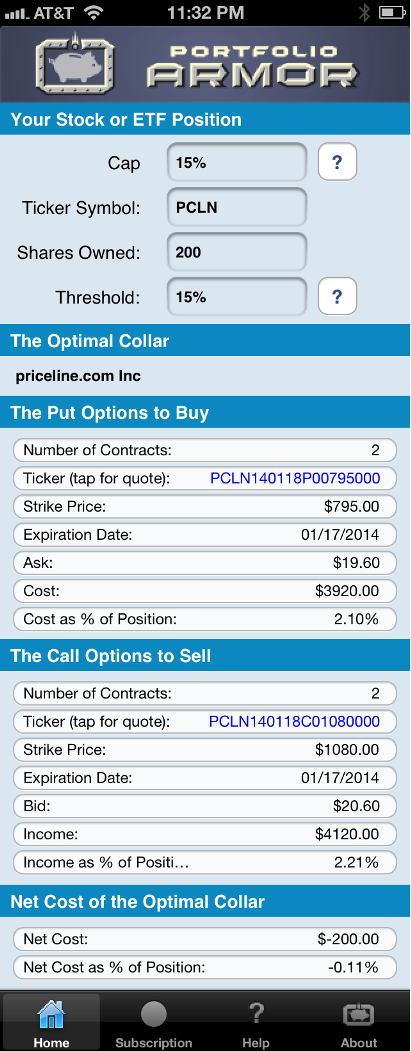One of the concerns often raised about hedging is the cost of it. But by scanning for optimal collars you can reduce the cost of hedging -- sometimes to the point where you can get paid to hedge. That was the case with Tesla Motors (TSLA) earlier this week, and it was also the case with Priceline.com (PCLN) on Thursday.
This was the optimal collar, as of Thursday's close, to hedge 200 shares of PCLN against a >15% drop over the next several months, for an investor willing to cap his potential upside at 15% over the same time frame:

As you can see at the bottom of the screen capture below, the net cost of this optimal collar was negative, meaning you would have gotten paid to hedge in this case.
Note that, to be conservative, Portfolio Armor calculated the cost of this hedge by using the bid price of the call leg and the ask price of the put leg. In practice, you can often sell calls for more (at some price between the bid and ask) and buy puts for less (again, at some price between the bid and ask), so, in actuality, an investor opening the optimal collar above would likely have netted more than $200 to do so.
*Optimal collars are the ones that will give you the level of protection you want at the lowest net cost, while not limiting your potential upside by more than you specify. Portfolio Armor's algorithm to scan for optimal collars was developed in conjunction with a post-doctoral fellow in the financial engineering department at Princeton University. The screen captures above come from the Portfolio Armor iOS app.